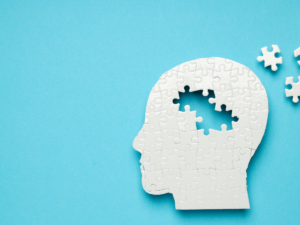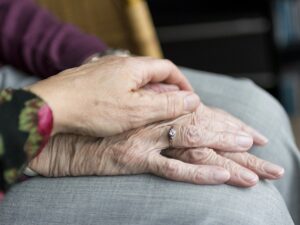Is it Alzheimer’s or Dementia?

What is Alzheimer’s Disease?
Alzheimer’s disease, the most common cause of dementia, was first identified in the early 1900s when Dr. Alois Alzheimer studied the brain of Auguste Deter, his patient, who had shown symptoms of memory loss, language difficulties, and unpredictable behavior. Upon her death, Dr. Alzheimer noted abnormal clumps (now known as amyloid plaques) and tangled fibers (tau tangles) in her brain. Today, Alzheimer’s is understood as a progressive brain disease that irreversibly destroys brain cells, leading to severe cognitive decline and memory loss.
In the end stages of Alzheimer’s, it robs individuals of the ability to perform even the simplest daily tasks.
What is Dementia?
Dementia, on the other hand, is a general term used to describe a group of symptoms associated with cognitive decline severe enough to interfere with daily activities. It is not a specific disease but rather an umbrella term that includes different types of dementia, each with various causes. Alzheimer’s disease is the most common type of dementia, but there are other types, such as vascular dementia, which is often caused by high blood pressure leading to reduced blood flow to parts of the brain, and dementia with Lewy bodies, characterized by abnormal protein deposits in the brain.
Other less common types of dementia include frontotemporal dementia, which involves atrophy (shrinkage) in the brain’s frontal and temporal lobes, and Creutzfeldt-Jakob disease, a rare, rapidly progressive brain disorder. Mixed dementia, where a person exhibits changes typical of more than one type of dementia simultaneously, is also common among American older adults. The risk of dementia increases with age, but it is important to note that it is not a normal part of aging.
Understanding the Symptoms and Diagnosis
If you know the early signs of Alzheimer’s and other dementias, you can get the right diagnosis and care. Early symptoms often involve mild cognitive impairment (MCI), where individuals may notice memory problems more severe than what is expected from normal aging. However, these early-stage signs might be subtle, such as forgetting recently learned information, asking the same question repeatedly, or having trouble following conversations.
As the disease progresses, more noticeable symptoms of Alzheimer’s and other types of dementia emerge. These include confusion with time or place, difficulty completing familiar tasks, and problem-solving challenges. Personality changes, such as increased anxiety, aggression, or depression, can also be significant indicators. Family members and caregivers often play a vital role in noticing these symptoms of dementia and seeking medical advice.
Physicians diagnose dementia by assessing whether there is a decline in two or more areas of cognitive function, such as memory, language, reasoning, or visual perception. Tools like mental skill tests, a detailed personal history, and neurological exams help in diagnosing. Conditions like vascular dementia or Lewy body dementia might require imaging tests to detect specific brain changes.
Recent advances in technology now allow for the detection of Alzheimer’s disease through PET scans or cerebrospinal fluid sampling to identify amyloid and tau buildup. However, these tests are often not covered by health insurance, making accurate diagnoses heavily reliant on healthcare providers‘ expertise in recognizing the progression of symptoms.
Managing and Treating Dementia
While there is currently no cure for Alzheimer’s disease or many other types of dementia, there are treatments and interventions that can help manage symptoms and improve quality of life. Medications may be prescribed to address cognitive symptoms and behavior changes, and certain drugs might help to delay the disease’s progression. Additionally, therapies, such as cognitive stimulation and memory exercises, can support cognitive function.
Caregivers play a crucial role in managing daily tasks and providing emotional support to those living with dementia. They often need to adapt to the home environment to ensure safety and comfort, especially as the disease progresses. Support groups for caregivers and family members can offer valuable resources and a sense of community, helping them cope with the emotional and physical demands of caregiving.
In memory care communities like Parc Provence, residents benefit from specialized care tailored to their unique needs. These environments are designed to provide a safe, structured setting where individuals can engage in activities that promote cognitive health and well-being. The Alzheimer’s Association and other support organizations offer resources and information to help families and caregivers navigate the challenges associated with dementia.
Reducing the Risk and Supporting Healthy Aging
While some risk factors for dementia, such as age and genetics, cannot be changed, lifestyle choices can play a role in reducing the risk. Engaging in regular physical activity, maintaining a healthy diet, and managing cardiovascular health are essential steps in promoting healthy aging. Mental stimulation, such as learning new skills or engaging in problem-solving activities, can also help keep the brain active and potentially delay cognitive decline.
Understanding Alzheimer’s and other types of dementia is crucial for early intervention and planning. By recognizing the signs of dementia early and seeking help from healthcare providers, individuals can access treatments that may improve their quality of life and potentially slow the progression of symptoms.
Contact Parc Provence
Navigating the challenges of dementia requires knowledge, support, and compassionate care. Whether dealing with Alzheimer’s, vascular dementia, Lewy body dementia, or any other form, understanding the condition helps prepare for the journey ahead.
The right support and environment can make a world of difference for those living with Alzheimer’s and other forms of dementia. Parc Provence, a residential community specializing in memory care, is a leader in its field. We offer residents quality of care and a pleasing daily life.
If you or a loved one has questions about dementia or Alzheimer’s disease, we can help. Please call 314-697-2081.





